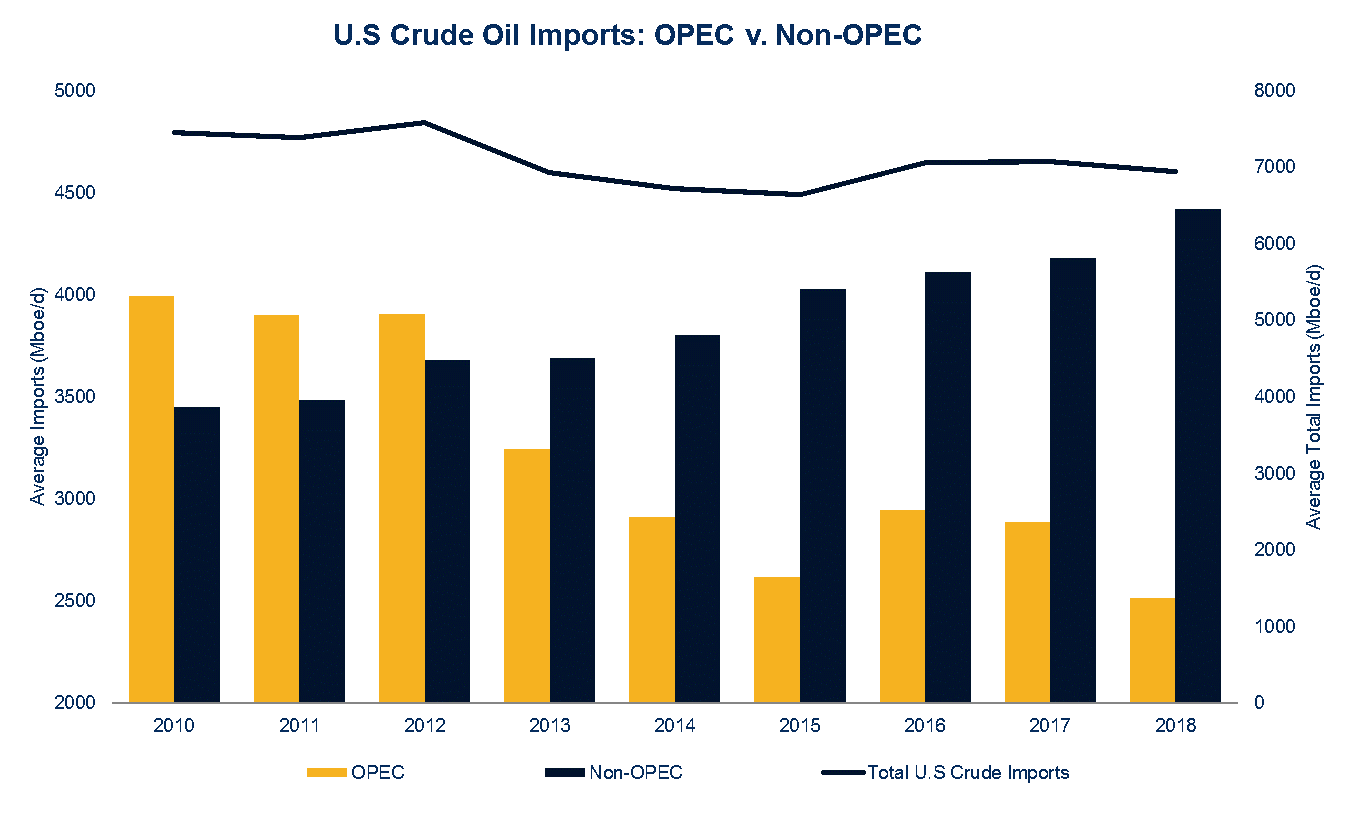Current federal law provides that foreign governments cannot be sued for failing to comply with U.S. federal antitrust laws; NOPEC seeks to change that
The No Oil Producing and Exporting Cartels Act (“NOPEC”) is quietly making its way through the U.S. House of Representatives–again.
H.R.5904 – NOPEC’s latest incarnation – was introduced in May 2018 by Ohio Congressman Steve Chabot. During the markup session on June 13, Chabot said it was the fifth time he has introduced the legislation since the fall of 2000. “We’re going back 18 years here,” he said, “so it’s [been introduced and debated] under both Republican and Democratic administrations.”
Chabot and other representatives from both parties testified in the full committee meeting. Most referenced the need to end high gasoline and fuel prices in the U.S. that come as a result of OPEC member collusion to affect oil pricing.
Rhode Island Congressman David Cicilline, ranking sub-committee member set out the background for the current bill, which he co-sponsored.
“Since 1960 the Organization of Petroleum Exporting Countries, or OPEC, has colluded to manipulate the supply and price of crude oil with total impunity under our laws. Most recently OPEC members announced a new agreement with 11 non-OPEC countries, including Russia, to manipulate oil prices by reducing production, which means that working people in our country end up paying more for gas in their car or heat for their homes.
“Cartel behavior like this is considered a hard-core criminal violation of the anti-trust laws because it’s an explicit agreement to collude in order to fix prices, reduce output or allocate markets. The Supreme Court has referred to this anti-competitive conduct, which has no pro-competitive justification, as the supreme evil of anti-trust,” Cicilline testified at the committee hearing.
“But unlike other cartels, foreign oil cartels are free to engage in anti-competitive conduct to fix the price of oil due to legal doctrines of sovereign immunity and acts of state which place firm limitations on the judicial process when it comes to resolving legal disputes with foreign governments. It’s time for this practice to end,” he said.
Cicilline said that in prior congresses, the bill, whose wording is essentially unchanged in the 2018 version, had previously passed both the House and Senate with overwhelming bipartisan support.
What the bill would do
The NOPEC bill would allow the Justice Department to investigate and prosecute foreign oil cartels.
“It would do so by clarifying that commercial activity by other countries to limit the production or set the price of oil and other petroleum products is not exempt under the Foreign Sovereign Immunities Act or other judicial doctrines,” Cicilline said.
He said the NOPEC Act “authorizes the Justice Department to investigate and potentially bring these types of cases, which alone may be enough to discourage collusion by foreign oil cartels. Put another way,” he said, “this bill gives the executive branch a tool to ‘speak softly and carry a big stick’.”
He said that anti-trust enforcement alone is not a silver bullet to lowering oil prices. Cicilline, a Democrat, pitched his support to rely more on renewable energy. “I firmly believe that addressing oil consumption rather than oil production is critical to ensuring America’s energy independence.”
In 2007, the Office of Management and Budget warned the bill “has the potential to lead to oil supply disruptions and an escalation in the price of gasoline, natural gas, home heating oil and other sources of energy,” the Houston Chronicle reported at the time.
As of June 28, the OMB has not published a cost estimate for H.R.5904, the 2018 iteration of NOPEC.
House Judiciary Committee Chairman Bob Goodlatte (R-Va.) at a hearing by the Subcommittee on Regulatory Reform, Commercial and Antitrust Law, discussed the opportunity to bring up the NOPEC bill in the 2018 session. “Despite strong support in Congress over a period of years, NOPEC has not yet become law. However, recently, President Trump signaled that he may be more receptive than prior presidents to NOPEC. This creates a real opportunity to enact this long overdue law.”
History of NOPEC
(Source: Wikipedia)
The NOPEC Act was initially sponsored and introduced by Sen. Herb Kohl, D-WI, in June 2000 (S. 2778). The bill had 9 bipartisan cosponsors, including Sen. Chuck Schumer, D-NY, Patrick Leahy, D-VT; Chuck Grassley, R-IA; Arlen Specter, R-PA; and Sen. Joseph Lieberman, D-CT. That bill passed the Senate Judiciary Committee on September 21, 2000.
The bill was reintroduced in the Senate by Sen. Kohl in every Congress until his retirement at the end of 2012, and passed the Senate Judiciary Committee each Congress.
The identical text of the NOPEC bill was also introduced in the House of Representatives by Representative John Conyers, D-MI, in May 2007 and then as H.R. 6074 by Representative Steve Kagan, D-WI.
In the U.S. House of Representatives, the 2007 bill had 12 bipartisan co-sponsors in the House and strong bipartisan support in the U.S. Senate.
H.R. 2264 was passed by the House of Representatives in May 2007 as a stand-alone bill by a vote of 345-72. That same month, it also passed the Senate by a vote of 70-23 as part of its energy measure.
As part of the Gas Price Relief Act, NOPEC (H.R. 6074) was then passed in the House of Representatives, in May 2008, by a vote of 324-84.
President George W. Bush reiterated his previous promise to veto the bill. Under a continued veto threat, a team of senators reintroduced the bill just a week before President Bush left office. However, NOPEC/H.R. 6074 did not then come to a final Senate vote and has not gone beyond its introduction subsequently.


